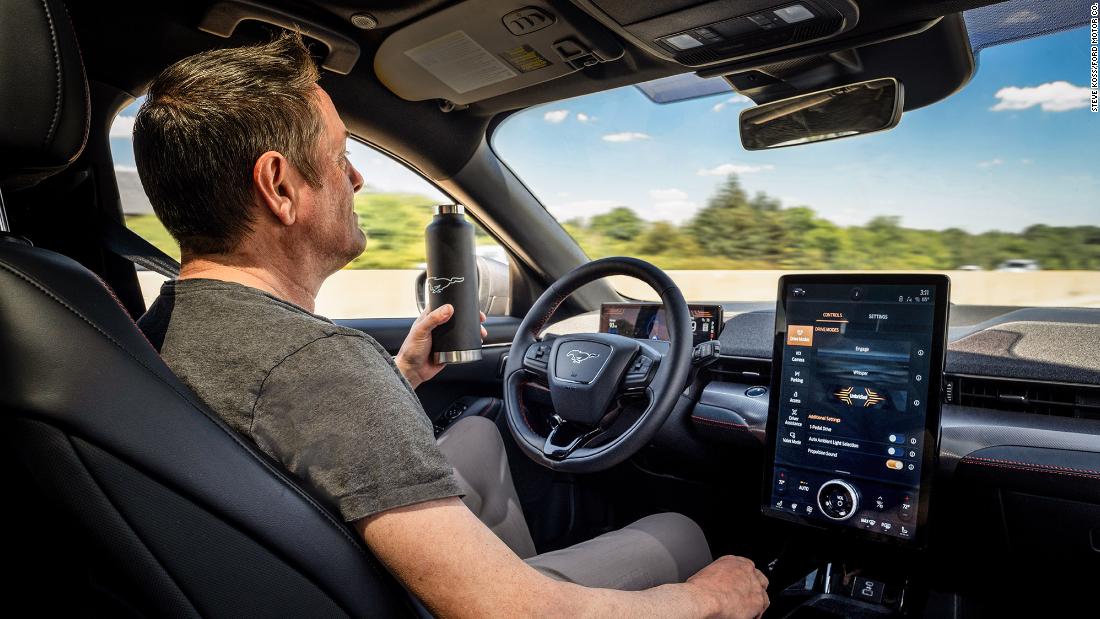In SUVs with this technology, drivers will be able to remove their hands from the steering wheel and pull their feet away from the brake and gas pedals while the vehicle essentially drives itself on selected major highways.
The Mach-E will go on sale later this year, and the hardware to enable hands-free driving will be offered as an option. The software to enable the functionality, called Active Drive Assist, will be sold separately by the fall of 2021, Ford said. Drivers will either be able to install it at home through a download or at a Ford dealership.
Drivers have a tendency to “over-trust” these sorts of driver assistance technologies and stop paying attention after about seven minutes of using a system like this, said Darren Palmer, Ford’s director of electric vehicles. That makes driver monitoring technology important.
No data will be stored from the driver monitoring camera, he said. It will be used only for moment-to-moment monitoring of the direction of the driver’s gaze.
Ford’s Active Drive Assist is different from Tesla’s Autopilot technology because Autopilot is not designed to allow drivers to let go of the steering wheel for long periods. The Tesla system also does not have a driver monitoring camera. Instead, Autopilot relies on sensing at least a slight tug from the driver’s hand on the steering wheel to indicate that the driver is involved in driving. If the Tesla system does not sense a hand on the steering wheel for a period of time, Autopilot will stop working.
Many other automakers, including Mercedes-Benz, Audi, BMW and Nissan, offer systems generally similar to Tesla Autopilot that also do not encourage drivers to remove their hands from the steering wheel.
Ford’s Active Drive Assist system will not execute highway lane changes, according to Ford. That is something that Tesla’s and some other systems can do and that GM has announced future Super Cruise systems will be able to do.
The Active Drive Assist system will work on more than 100,000 miles of divided highways in the United States and Canada, the company said. The system can be updated to allow use on more miles of highway over time.
The system incorporates various driver assistance technologies, such as adaptive cruise control, which automatically follows traffic ahead at a set distance, and automatic lane keeping, Ford said.
The driver will be alerted when he or she enters a highway on which the system can work. The status of the various driver assistance systems, including Active Driver Assist, will be indicated in the narrow computer screen directly in front of the driver which serves as the gauge cluster. Engineers carefully researched how to clearly indicate to drivers the status of the systems, Ford executives said.
Once the system is engaged, drivers will be able to immediately take back driving control by just using the steering wheel, said Chris Billman, director of customer experience for Ford’s drive assistance technologies.
“We wanted to make sure you could take over without making it feel like you’re wrestling control from the car,” he said.
Some other systems, like Tesla’s Autopilot, require a firm tug in the steering wheel to return control to the driver.
Ford did not provide pricing information for the hardware or software. The company plans to make the technology available on other Ford models later, executives said.




